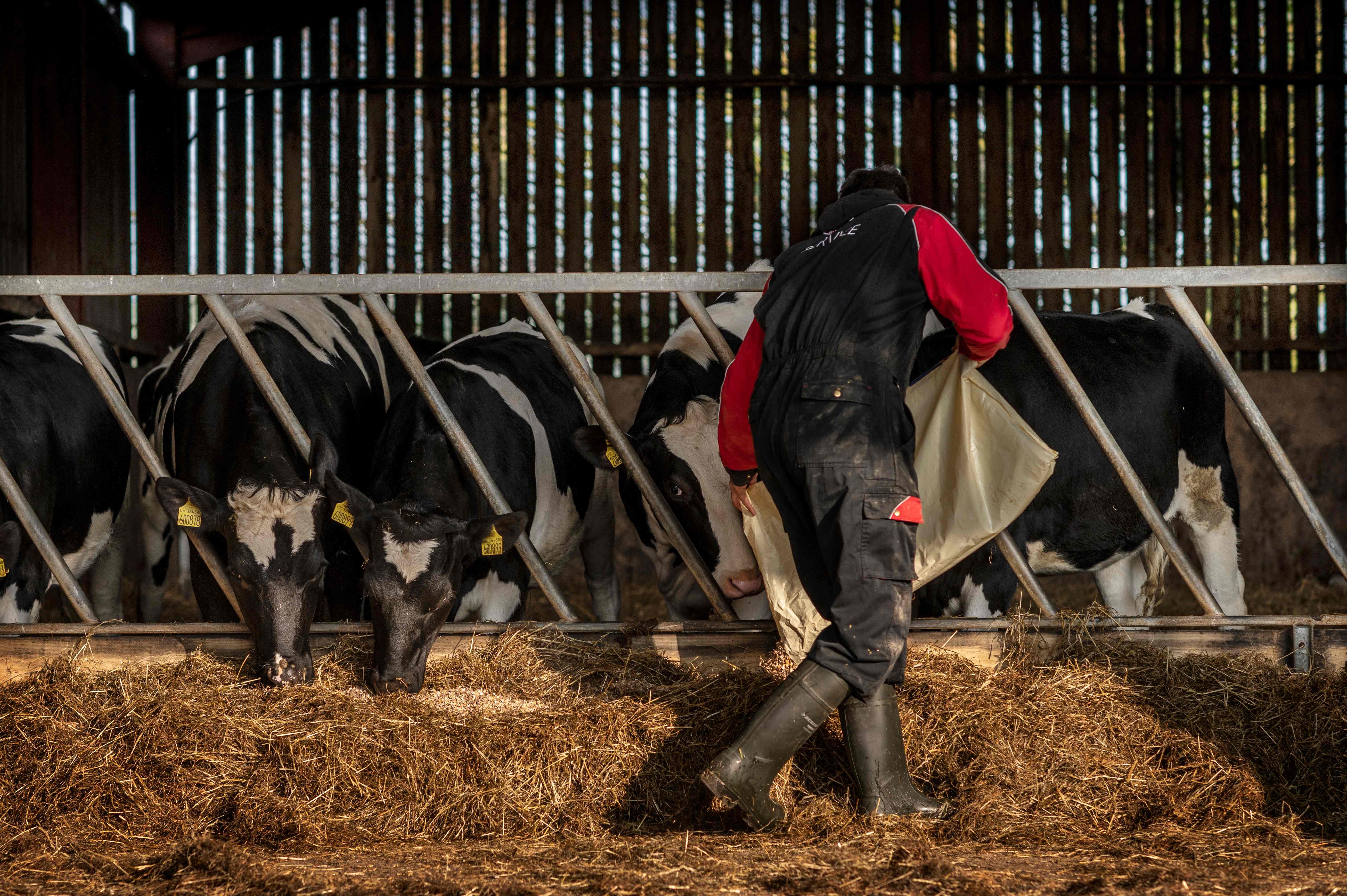Farmers are in trouble – and that means UK food security is too
I know at first hand how resourceful and courageous British farmers are, but rising costs and lack of a fair pricing structure for products are inflicting a lot of damage, writes Simon Mellin


British farmers are a resolute and hardy bunch. They regularly brave inclement weather and have managed to survive global economic challenges and livestock diseases. However, the industry has been having a particularly torrid ride over the last year, especially since September, with costs of agricultural inputs climbing sharply.
Experts are predicting impending food shortages and farmers across the country are rapidly reducing production – and even contemplating having to quit the sector altogether. While talk of food shortages might sound alarmist, it is important to understand what’s got farmers worried.
According to a recent study, costs of fuel, fertilisers, and animal feed have shot up by more than 25 per cent each. Fertilisers have seen the greatest rise, clocking a staggering growth of 107.7 per cent, while the fuel price increase is nudging the 30 per cent mark. Agriculture in the UK is battling double-digit inflation.
While global events, primarily the conflict in Ukraine and the spate of Covid-19 lockdowns in China, have not helped, the problems have been brewing for some time. The background issues are a lack of long-term and reliable supply chains and an uneasy relationship between farmers, processors and purchasers.
A recent study commissioned by the National Farming Union (NFU), that relied on data from February and March 2022, makes for painful reading. It identified a 10 per cent drop in production and highlighted that crops worth an approximate £200,00–£300,000 are being left unharvested in fields. It also noted that, in certain extreme cases, the spiralling cost burden is forcing farmers out of the sector altogether.
While there is certainly room for the government to step in and provide much-needed relief to the farming community, the NFU horticulture and potatoes board chair Martin Emmett underlined the fact that real support will come through the “rest of the supply chain bearing some of the cost pressures and ensuring a fair return to farmers”.
Having worked with numerous independent dairies and farmers, I know at first hand how resourceful and courageous British farmers are. There is a real desire to continue filling shop shelves with the finest, freshest and highest-quality British produce. But rising costs and lack of a fair pricing structure for products are inflicting a lot of damage.
Coming from a farming family, I know how hard it is to break even, even at the best of times, let alone when costs are spiralling. The farming community wants products to be affordable for customers, while ensuring that farmers still receive a fair price for their yield.
We can’t expect consumers to bear all the costs, when they are also facing huge increases to the cost of living. It is time for retailers, who are announcing record post-pandemic profits, to step up, do the right thing and pay farmers more. In April, Tesco announced that profits have more than trebled and is forecasting profits of between £2.4bn and £2.6bn this year. Retailers are having a better time than farmers.
There are consumers out there, however, who are willing to pay more if they know they are getting more locally sourced food which is also likely to have higher ethical standards and be more sustainable. By supporting local producers, people are helping to reduce transportation costs. Shortening the distance between the source of food and its end consumer also means there is less chance of it spoiling, which helps to reduce food waste – in itself a major cause of greenhouse gas emissions.
To keep up to speed with all the latest opinions and comment, sign up to our free weekly Voices Dispatches newsletter by clicking here
In 2018, British people threw away 9.5 million tonnes of food. But it’s not just consumers who are contributing to these growing mountains of food waste. Over three million tonnes of food is wasted before it even reaches supermarket shelves because of the strict rules imposed on farmers. Supermarkets lay down regulations about availability and consistency, and draw up rigid specifications. Up to 40 per cent of wasted fruit and vegetables are binned because they are either too small or do not meet supermarket cosmetic requirements.
Reducing food waste and enabling people to support local producers is something I am passionate about and one of the reasons I founded The Modern Milkman in 2018. We deliver drinks in returnable glass bottles, plus other products in sustainable packaging.
As the conversation around ethically produced and sustainable food sources gathers steam, it is vital that retailers reevaluate their relationship with the farming community, the latter being key to maintaining a high-quality and traceable food chain.
British farmers need to persuade everyone across the supply chain to reset their way of thinking about prices, in order to set the foundation for a healthy and long-term relationship and stabilise the UK’s food security.
Simon Mellin is the founder & CEO of The Modern Milkman, a business set up to reduce waste, offer a convenient way to shop sustainably, and support independent suppliers
Join our commenting forum
Join thought-provoking conversations, follow other Independent readers and see their replies
Comments
Bookmark popover
Removed from bookmarks